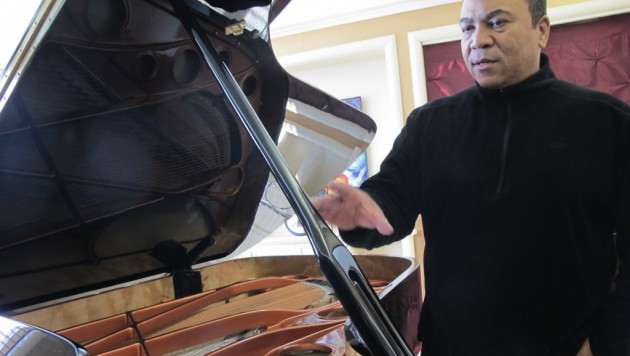When Nickole Conerly found out that Howard University would admit 12 dozen students displaced by Hurricane Katrina, the university counselor said that she knew these students and others would need some emotional TLC..
“We wanted people to know that there are certain feelings that are normal,” said Conerly, Director of Training at Howard University Counseling Services. “So that people would know that they weren’t (going) crazy.”
Having anxiety attacks, grief, headaches, concentration problems, crying easily, abusing drugs or hyper-vigilance are some responses to the devastation caused by the hurricane which hit the Gulf States over a week ago, she said.
On Tuesday, Howard admitted students from Xavier, Southern, Dillard and Tulane Universities, all located in New Orleans. These schools and others are closed indefinitely due to flood damage and power outages.
“Without some assistance, students can become stressed, not go to class and you can see the outcome,” said Conerly, She added that within 30 days of a disaster, different emotions may surface and, if left unchecked they could become a problem.
Last week, Conerly told school officials that her staff planned counseling sessions specifically for students who were emotionally affected by the hurricane’s aftermath.
"Gulf State resident or not, all students were welcome," she said.
She and her co-workers posted flyers across the Washington, DC campus to get the word out to distraught students.
Within a week, she got a telephone call from Drew Hall, an all-male dormitory on campus The voice on the other line asked that a counselor help about 30 men who were still grappling with the idea that their family and friends were faced with life and death situations, said Conerly without disclosing the student’s name.
A “roller-coaster ride of emotions” was what the men were dealing with, she said.
But most common among the male students was a sense of “survivor guilt” — when an individual feels guilty for living safe while a family or friend goes without the basic necessities like clothes, food and water.
“I’m here doing well in a warm, dry dorm and my family has nothing,” Connerly recalled from the male resident. “It has to be overwhelming,” she said rolling her head back and looking toward the ceiling.
Although she could not provide any numbers, Conerly said that several students already attending Howard were from the affected areas.
Her office was working to get a list from the registrar’s office of those students who were from the Gulf States so that “we can reach out to them,” she said.



